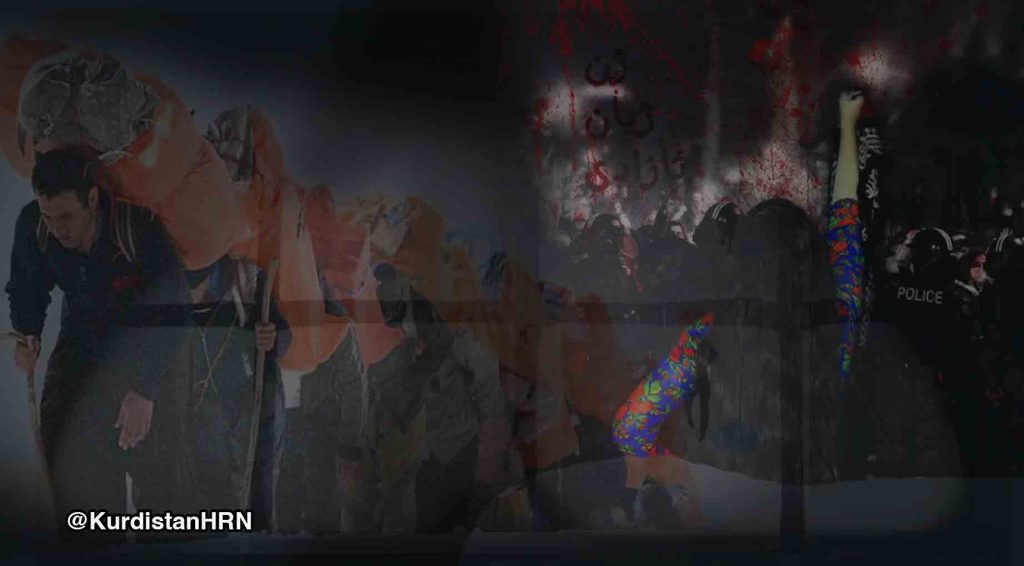The “Week in brief” by Kurdistan Human Rights Network (KHRN) is a weekly review of the most important human rights news and developments from and about Iran’s Kurdish areas.
Iranian Kurdish political prisoner in court says faced deadly torture
Kurdish political Ramin Hossein Panahi attended first court hearing on 15 January at Branch One of the Islamic Revolutionary Court in Iran’s Sanandaj headed by Judge Saeedi and another judge.
“Ramin Hossein Panahi told the court that he had been tortured [nearly] to death at the Sanandaj Intelligence Bureau until his kidneys were bleeding. He also added that he had not been offered any medical treatment,” a reliable source told the told the Kurdistan Human Rights Network (KHRN).
Panahi stands accused of having acted “against national security” as a member of the outlawed Iranian Kurdish opposition party, the Komala.
The court also accused his of “carrying arms and engaging in armed conflict”.
However, Panahi denied all the charges brought against him at the court hearing.
According to his family members and his statements at the court, his health has been deteriorating due to the torture he had faced and medical negligence during his time solitary confinement cells.
He is now suffering from kidney illness and amnesia. He is in poor physical health and has not been offered any medical treatment in prison despite suffering from persistent pain due to his ailing kidneys.
http://kurdistanhumanrights.net/en/the-first-court-hearing-of-ramin-hossein-panahi-held/
Uncertainty looms over fate of detained Kurds in Iran’s Orumiyeh
A number of Kurdish people arrested after participating in the protest against the sexual harassment of a 12-year-old schoolgirl in Orumiyeh are still being detained at Orumiyeh Central Prison.
KHRN has been notified that at least 10 people are still in temporary detention at different parts of the Orumiyeh central prison with no information about their fate three months after the street protests against the sexual harassment of a schoolgirl in Orumiyeh.
According to one of the detainees recently released from prison on bail, some of detainees have been severely tortured physically by security forces during the interrogations and the impacts of these tortures are still visible on the bodies of these detainees.
“Over 50 Kurdish residents of the Islamabad neighbourhood were arrested during the protests but the majority of them were released on bail later”, the source said.
http://kurdistanhumanrights.net/en/the-uncertain-fates-of-kurdish-citizens-arrested-for-protesting-against-sexual-harassment-of-a-student-from-orumiyeh/
Kurdish lawyers condemn unlawful detention of Iran protesters
A number of Kurdish lawyers have issued a joint statement condemning any form of violence while declaring their full support for the legitimate and legal rights of the people.
The statement, a copy of which was sent to the KHRN, said: “Several protestors have been arrested following the mass protests against administrative, cultural and economic corruption in various cities…We, the signatories below, support the legitimate demands of the people and condemn any violence.”
The statement continued: “We call on the Islamic Republic of Iran to ensure that all the principles of the constitution and the rights of the detainees of the recent events are implemented without discrimination in the pursuit of providing a serious basis for dialogue and meeting the demands of the people.”
http://kurdistanhumanrights.net/en/a-statement-by-a-group-of-kurdish-lawyers-on-the-iran-protests/
Kurdish man kills his wife over family disputes in Piranshahr
A man has killed his wife Ronak Rasouli, 23, due to family disputes on 16 January.
Mrs Rasouli came from the village of Sarvak in Piranshahr and information that the KHRN has obtained confirm that she was murdered and did not commit suicide as several reports claimed over the past few days.
Moreover, forensic examinations have also revealed that she had been murdered, outlining that she was physically hit by a hard object and that had caused her death.
Suicide among women in Iran’s Kurdish region is often attributed to unintentional poisonings or explosions, while murder cases are sometimes reported as suicide.
Most local media outlets across the political spectrum do not provide accurate information when they report on crimes committed against women, although suicide is equally on the rise among women in the country’s Kurdish areas.
http://kurdistanhumanrights.net/en/family-dispute-led-to-the-murder-of-a-young-woman-in-piranshahr/


